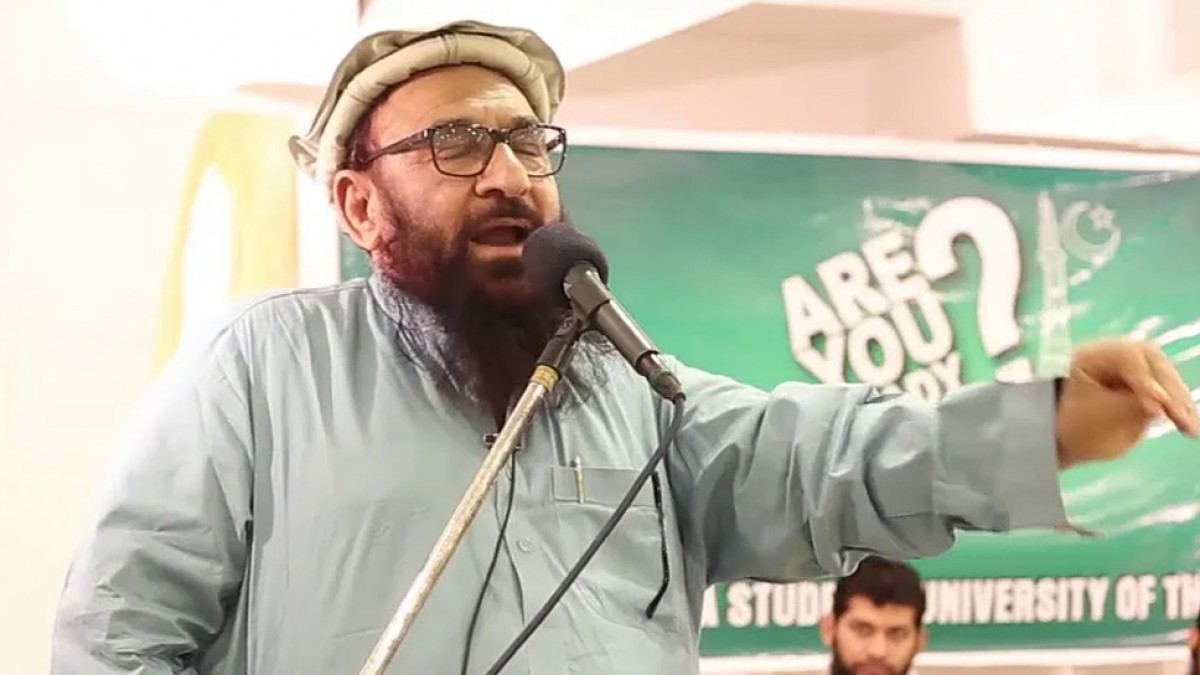


As China was forced to lift its opposition, the United Nations Security Council (UNSC) on Monday listed Pakistan-based terrorist Abdul Rehman Makki as a global terrorist under its ISIL (Da’esh) and Al-Qaida Sanctions Committee. This listing comes after China last year put on India’s bid to name the Lashkar-e-Taiba (LeT) leader a global terrorist. “On 16 January 2023, the Security Council Committee pursuant to resolutions 1267 (1999), 1989 (2011) and 2253 (2015) concerning ISIL (Da’esh), Al-Qaida, and associated individuals, groups, undertakings and entities approved the addition of the entry specified below to its ISIL (Da’esh) and AlQaida Sanctions List of individuals and entities subject to the assets freeze, travel ban and arms embargo set out in paragraph 1 of Security Council resolution 2610 (2021) and adopted under Chapter VII of the Charter of the United Nations,” the UN said in a statement. On Tuesday, China finally lifted its ‘technical hold’ on the designation of Makki as a global terrorist under the 1267 UN Sanctions Committee after the country was left isolated in the Security Council. This listing comes after China last year put a ‘technical hold’ India’s bid to name the Lashkar-e-Taiba (LeT) leader a global terrorist. In June 2022, India slammed China after it blocked the proposal to list terrorist Abdul Rehman Makki under the Sanctions Committee, also known as the UNSC 1267 Committee. India and the US have already listed Makki as a terrorist under their domestic laws. He has been involved in raising funds, recruiting and radicalizing youth to violence and planning attacks in India, especially in Jammu and Kashmir.
Makki is the brother-in-law of Lashkar-e-Taiba (LeT) chief and 26/11 Mumbai attack mastermind Hafiz Saeed. Makki was second-in-command, as well as the head of political affairs of the terror outfit LeT and Jamaat-udDawah (JuD). Makki, whom Pakistan provided a safe haven has been alleged to be involved in several major attacks against India besides 2008 Mumbai attacks. Makki is also a member of organisations like Dawat Irshad Trust, Moaz Bin Jabal Trust, Al-Anfal Trust, AlMadina Foundation Trust and Al Hamd Trust and Difae-Pakistan Council, the motley coalition of 40 right-wing political and religious parties of Pakistan which had once rallied against India and the United States. In 2020, a Pakistani anti-terrorism court convicted Makki on one count of terrorism financing and sentenced him to prison, acccording to the US State Department. In the past, China has placed hurdles for the listing of known terrorists, particularly from Pakistan. It had repeatedly blocked proposals to designate Maulana Masood Azhar, chief of the Pakistan-based and UN-proscribed terrorist entity, Jaish-e-Mohammed (JeM). Sources said that China stood isolated at UNSC over Makki as India won support from 14 out of its 15 members. For a long time, External Affairs Minister S Jaishankar has been in a campaign mode slamming China for blocking blacklisting of terrorists. India’s Permanent Representative to UN Ruchira Kamboj has been quite categorical in condemning Chinese efforts to scuttle the move to get Pakistan based terrorists blacklisted at the UNSC. Welcoming the move, India said that the country will press the international community to take strict action against terrorism. Responding to media, Ministry of External Affairs spokesperson Arindam Bagchi said, “We welcome the decision of the UN Security Council’s ISIL and Al-Qaida Sanctions Committee to list Lashkar-e-Tayyiba (LeT) terrorist Abdul Rehman Makki, who is also the brotherin-law of LeT leader Hafiz Saeed. Makki has occupied various leadership roles in LeT, including raising funds for the organisation.” “Threats from terrorist organisations in the region remain high and listings and sanctions by the UNSC, are an effective tool to curb such threats and dismantle terror infrastructure in the region,” he added. India remained committed to pursuing a zero-tolerance approach to terrorism, Bagchi said, adding that New Delhi will continue to press the international community to take credible, verifiable and irreversible action against terrorism.